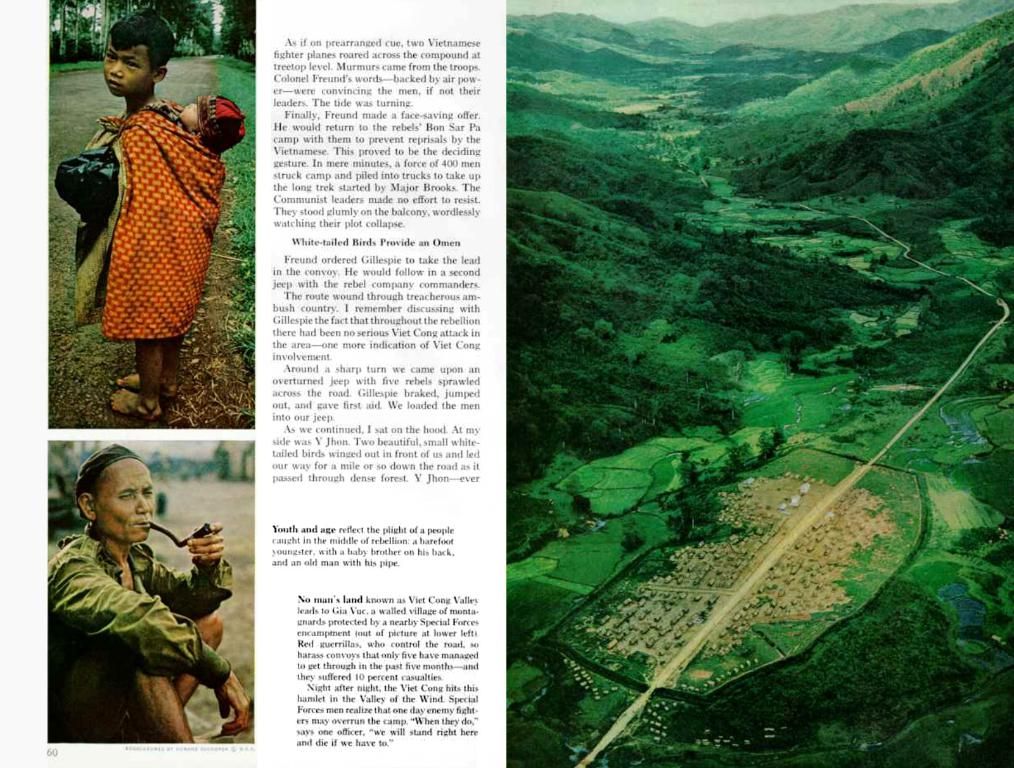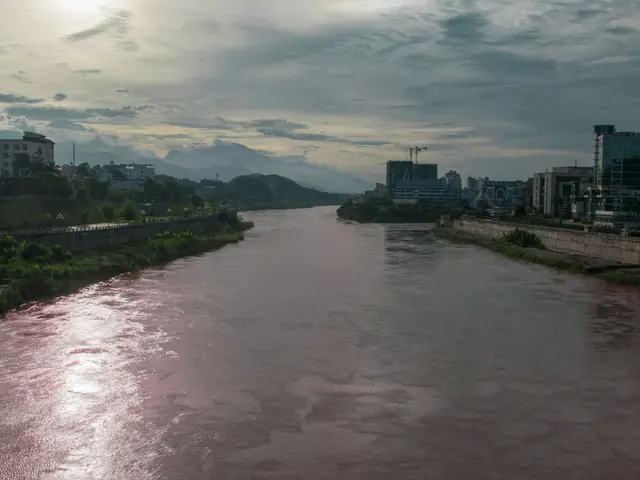Harmful Socio-Environmental Impact of Sigma Lithium's Operations in Minas Gerais Revealed by Researchers
Blowin' the Whistle on Sigma Lithium's Grota do Cirilo Project: A Technical Note from LIQUIT
On April 16, 2025, a technical storm brewed, as research groups affiliated with the Federal University of Minas Gerais (UFMG), the State University of Montes Claros (Unimontes), the Federal University of the Jequitinhonha and Mucuri Valleys (UFVJM), and London South Bank University joined forces in the international research project LIQUIT. Their objective? To expose Sigma Lithium S.A.'s less-than-stellar operations at its Grota do Cirilo project in the municipalities of Araçuaí and Itinga, Minas Gerais.
In a transparent move, they sent a Technical Note to environmental agencies in Minas Gerais, accusing Sigma Lithium of human rights violations, irregularities in the environmental licensing process, and neglected environmental impact studies. Their whistleblowing also denounced Sigma for using outdated mining technology, which causes a whopping 30 times more socio-environmental damage than modern alternatives.
Although Sigma Lithium hopes to be seen as a pioneer of "sustainable mining," their antiquated open-cast mine methods have been criticized as obsolete. By contrast, a neighboring company has been utilizing the sublevel-stopping underground method for three decades, significantly reducing land consumption and waste generation by 30%. Yet, Sigma chooses to ignore this eco-friendly alternative in their studies, blatantly disregarding Brazil's CONAMA Resolution 001/1986, which demands analysis of all viable technologies.
"Rather than paving the path forward, Sigma is sweeping the Jequitinhonha Valley under the rug, sacrificing it for the convenience of consumerism in the Global North. Meanwhile, local firms are managing efficiently, causing less harm to our precious ecosystem." -- Klemens Laschefski (Professor, Department of Geology, UFMG; researcher at GESTA-UFMG).
Residents of Piauí Poço Dantas and Ponte do Piauí complain of intolerable living conditions: relentless truck noise, house-cracking vibrations, constant dust, and water contamination. The Technical Note states that an approved expansion would exacerbate these conditions, with trucks carrying 40 tonnes making more than two trips per minute to feed the processing plant and remove waste.
"These are flagrant violations of fundamental rights: the right to rest, the right to health, the right to clean water, the right to dignity. Sigma dismisses these concerns as subjective complaints when faced with technical evidence and community testimonies that betray the indisputable truth." -- Rômulo Barbosa (Professor, Department of Social Sciences, Unimontes; researcher at NIISA-UNIMONTES).
Accusations against Sigma don't end there. The company is also alleged to be engaged in license-splitting, filing multiple separate permits to escape a comprehensive impact analysis and ease approvals. This, despite the fact that the project is an integrated industrial complex with up to nine planned pits. On top of this, the company's EIA omitted a cumulative-impact analysis with other regional mining projects.
"This isn't licensing-it's bureaucratic greenwashing. Repeated requests to expand infrastructure violate Article 16 of State Decree 47.383/2018, which requires all interdependent activities to be licensed as one." -- Marcos Zucarelli (researcher, GESTA-UFMG).
For the licensing process to occur without Free, Prior and Informed Consultation (FPIC) and in disregard of the ILO Convention 169 is, in their opinion, a strategic silencing of the affected communities. The Technical Note stresses that the company's EIA relied heavily on secondary socioeconomic data collected by Sigma itself, undermining the independence required for such processes.
Before and during the public hearings, many affected residents perceived a chilly climate of fear and intimidation, aimed at muzzling criticism.
"Families have been enduring unbearable living conditions since mining started: noise pollution, demolished homes, constant dust, tainted water. Sigma dismisses these concerns, resorting to technical arguments. Meanwhile, about 70 directly affected families find themselves trapped, their homes cracking, their peace of mind shattered, and their cultural way of life at risk." -- Vanessa Juliana (researcher and extensionist at the Observatory of the Jequitinhonha and Semi-Arid Valleys).
In conclusion, the Technical Note communicates a stark warning and calls for immediate cessation of Sigma Lithium's activities in the affected communities. It also demands the revocation of all environmental licenses already granted, a thorough reevaluation of the licensing process incorporating local knowledge and FPIC, and the prioritization of studies to examine the feasibility of low-impact technologies like underground mining.
"We cannot stand idly by while the Jequitinhonha Valley becomes a battleground for negligence. An ethical energy transition cannot echo the violence of colonial times." --Guilherme Queiroz (PPGSAT/UFMG/UNIMONTES).
As of now, Sigma Lithium continues to develop its project at Grota do Cirilo, with no clear response to the searing allegations of LIQUIT. The black cloud lingering over their mining operations remains unresolved, as neighbors struggle to breathe free and live in harmony with their natural environment.
If you have concerns about this project or would like to contact the organizations involved, please visit [email protected].
Photos by Rebeca Binda.
- The scientific community has raised concerns about Sigma Lithium's Grota do Cirilo project in the Jequitinhonha Valley, accusing them of outdated mining practices, neglected environmental impact studies, and irregularities in the licensing process.
- The LIQUIT project, a collaboration between research groups from UFMG, Unimontes, UFVJM, and London South Bank University, aims to bring light to Sigma Lithium's questionable practices and their impact on the environment and local communities.
- Sigma Lithium's open-cast mining methods have been criticized as obsolete and inefficient, causing significant socio-environmental damage, while neighboring companies employ eco-friendly alternatives like the sublevel-stopping underground method.
- Residents of nearby communities have reported intolerable living conditions due to truck noise, house-cracking vibrations, dust, and water contamination, with an approved expansion promising to exacerbate these problems.
- The Technical Note from LIQUIT alleges that Sigma Lithium is engaged in license-splitting, a practice aimed at avoiding comprehensive impact analysis and easing approvals.
- The project's environmental impact assessment (EIA) is also criticized for relying heavily on secondary data collected by Sigma itself, undermining the independence required for such processes.
- The affected communities have reported a climate of fear and intimidation, aimed at silencing criticism and obstructing the Free, Prior and Informed Consultation (FPIC) process mandated by ILO Convention 169.
- The LIQUIT project calls for an immediate halt to Sigma Lithium's activities in the affected communities, the revocation of all environmental licenses, a reevaluation of the licensing process incorporating local knowledge and FPIC, and the examination of low-impact technologies to prevent further damage to the environment and local communities.








